The Black Heritage Surprises of Daytona Beach
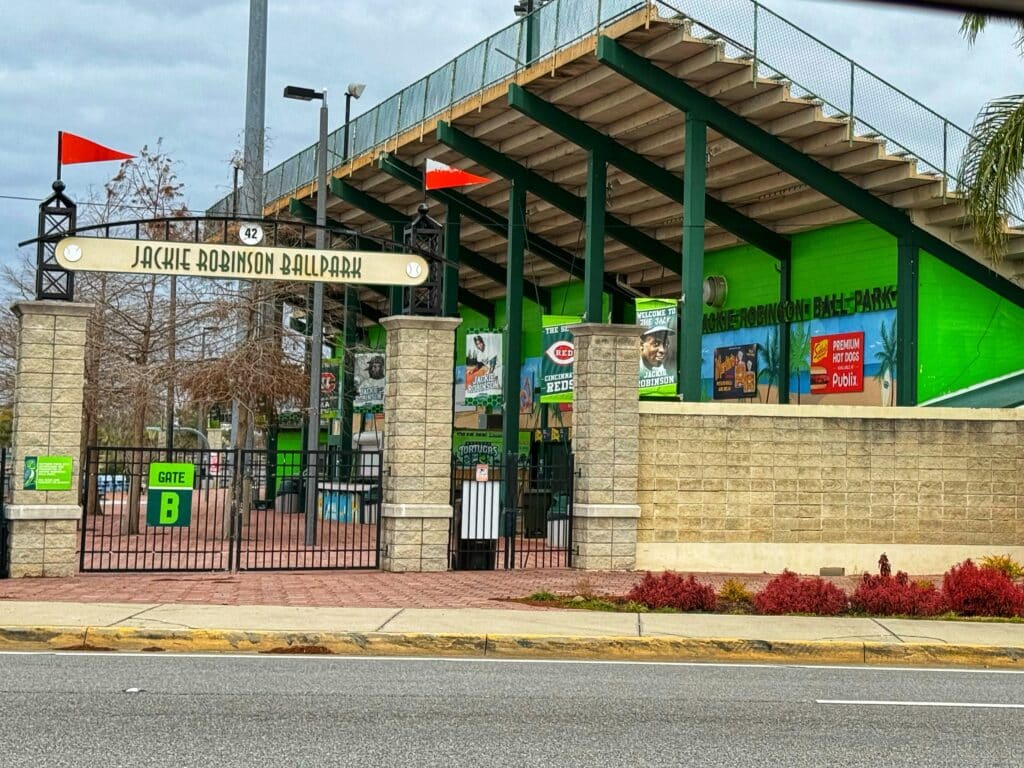
Mention Daytona Beach, Florida, and most people will either declare its glory as the birthplace of NASCAR or as the “World’s Most Famous Beach.” Daytona Beach and its surrounding communities occupy an iconic piece of Florida’s east coast. For some, the city’s claim to fame is the Daytona International Speedway where brightly colored race cars whisk around the track at unimaginable speeds to the delight of thousands of fans. For beach lovers, the lure lies in the view of cars driving on the beach alongside the white-capped waves of the Atlantic Ocean. Or perhaps, the draw is the famed boardwalk flanked by kitschy gift shops, snack bars and classic arcades. I know this because I lived within an hour’s drive of Daytona Beach for 35 years. But recently I returned and discovered an entirely new place.
Sure, the Daytona International Speedway is still there – and looking better than ever. And those famed beaches? They still attract cruising cars and bikini-clad girls along with families with kids begging to play just one more game at the arcade. It’s as it should be. But it’s also so much more.
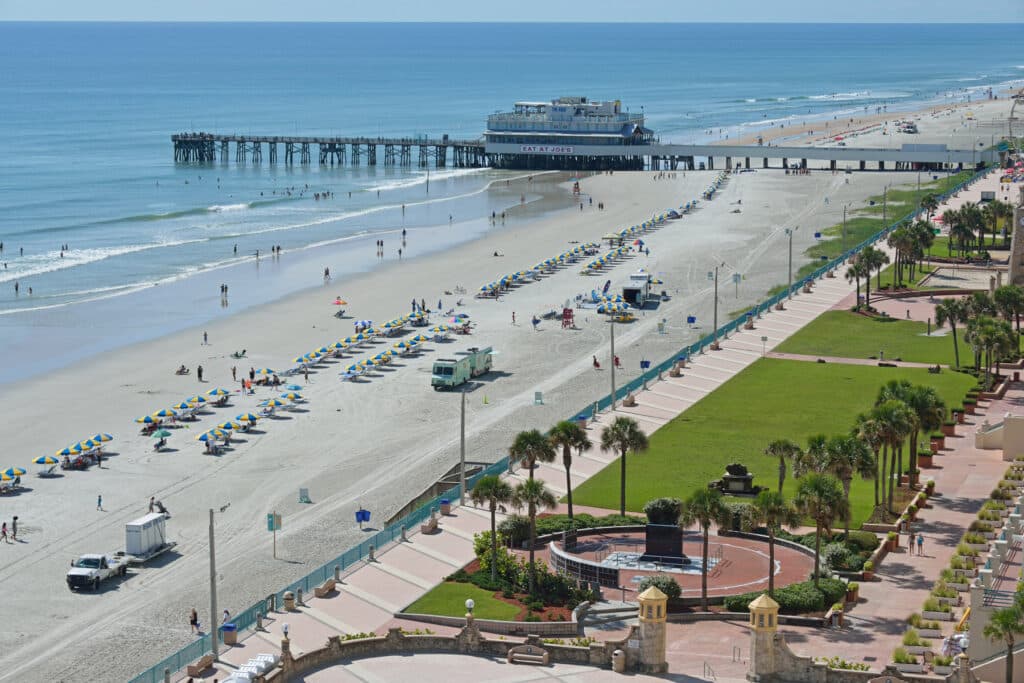
A Significant Role in Black History
It turns out Daytona Beach is a treasure trove of Black history sites and stories. The list of innovative and heroic Blacks who lived and worked in this area from the late 1800s and beyond is vast. Their stories live on along the Daytona Beach Black Heritage Trail which includes 18 locations, each with an inspiring story to uncover.
Arriving in Daytona Beach for the first time in 20+ years, my discoveries began at the Riverfront Esplanade – a gathering space and botanical garden spanning one mile alongside the Halifax River, a section of the Intercoastal Waterway. My first view was that of a 13-foot-tall, 829-pound bronze statue of Dr. Mary McLeod Bethune – just one of many remarkable stories of the area’s Black heritage.
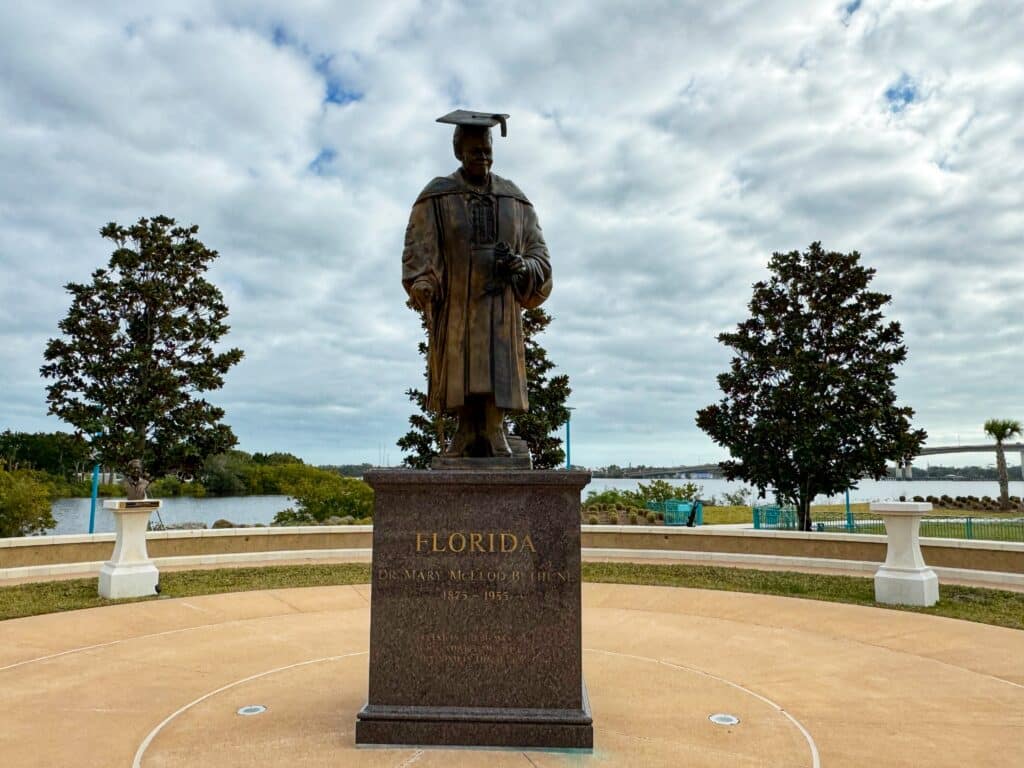
Dr. Mary McLeod Bethune’s Role in the Daytona Beach Story
The daughter of formerly enslaved parents, Bethune’s passion for civil rights and the women’s rights movement in the first half of the 20th century is legendary. The only one of 17 siblings to attend school, she committed her life to education, first as a teacher and then as the founder of a school for Black girls that is now the co-ed Bethune-Cookman University in Daytona Beach.
She became politically active in fighting for women’s suffrage. In 1920, when women won the right to vote, Bethune organized African American men and women to go to the polls. She knocked on doors to raise money for the poll tax – a tax implemented by Whites to keep poor Blacks from voting. She even held special classes to help potential voters pass the literacy test required to vote.
A woman of extreme courage, when the Ku Klux Klan threatened to burn down her school after hearing of her activities, she stood in front of the school all night ready to defend it. The Klan never arrived, and the following day some 100 people voted for the first time under Bethune’s leadership.
After the election of Franklin D. Roosevelt, Bethune became part of an informal group of Black presidential advisors known as the “black cabinet” allowing her to advocate for Black rights directly with the president. Learn more about this astounding woman at the Dr. Mary McLeod Bethune Home and Gravesite on the Daytona Beach Black Heritage Trail. A National Historic Landmark, the home displays artifacts from her life and career. You’ll also get a glimpse of the guest bedroom where her close friend, former first lady Eleanor Roosevelt stayed during one of her visits to Daytona Beach.
Jackie Robinson’s Connection to Daytona Beach
Jackie Robinson’s legacy as a baseball player is unparalleled – not just for his talent but also for breaking baseball’s color barrier. The story of his debut with the Brooklyn Dodgers on April 15, 1947, is widely known. But that wasn’t the first time he broke the baseball color barrier. On March 17, 1946, Robinson played second base for the Montreal Royals (a minor league affiliate of the Brooklyn Dodgers) in a spring training game at City Island Ball Park in Daytona Beach.
Throughout spring training, Robinson had endured the isolation of racial discrimination. He wasn’t allowed to stay in hotels with his white teammates. Games in the nearby Florida cities of Deland and Jacksonville were canceled because local authorities objected to his presence and in Sanford, Florida, he was forced to leave the game. But when he arrived with the Montreal Royals to play at City Island Ballpark in Daytona Beach, residents ignored the Jim Crow-era mandates and welcomed Robinson onto the baseball field. Today, City Island Ballpark bears his name as the Jackie Robinson Ballpark. A bronze statue of Robinson stands at the park’s entrance. Additionally, the ballpark features historical markers and an outdoor museum. The home ballpark for the Daytona Tortugas, visitors to Daytona Beach can enjoy a baseball game in this historic venue. It’s also a stop on the Black Heritage Trail.
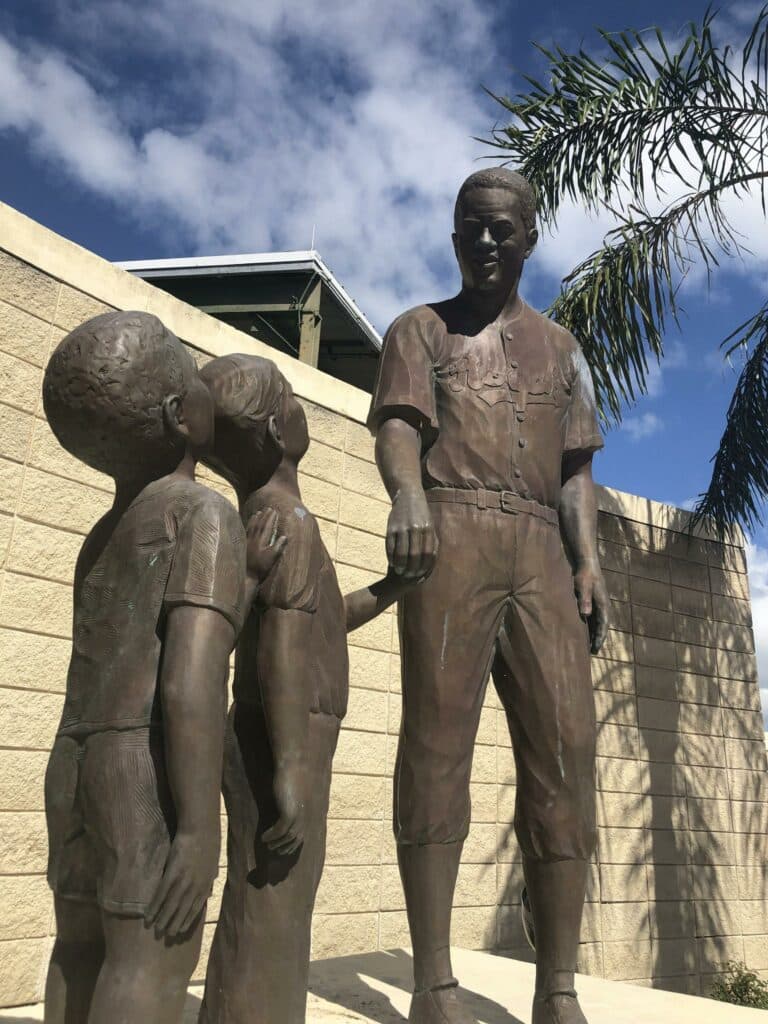
More Discoveries on the Black Heritage Trail
There is so much to explore on the Daytona Beach Black Heritage Trail. In addition to the aforementioned sites, the trail includes Daisy Stocking Park named for Daisy Hardy Stocking. Arriving in Daytona in 1916 at the urging of fellow South Carolinian and Scotia Seminary alumni Mary McLeod Bethune, Stocking became one of Dayton’s leading humanitarians. Also on the Black Heritage Trail, Daytona’s oldest Baptist church, Mt Bethel has traditionally been the place of worship for one of Daytona’s largest Black congregations. The list goes on with each stop along the trail providing moments of reflection and inspiration.
The Black Heritage Trail is reason enough to visit Daytona Beach, even if you never dip your toes in the sand.
Click HERE to find and book accommodations in Daytona Beach
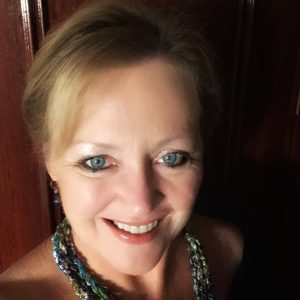
Based in New York City, Terri Marshall is an award-winning writer covering cultural travel, multi-generational travel, food, drink, road trips, cars and characters. From hanging out with penguins in Antarctica to fishing for piranhas in Peru, Terri’s always up for an adventure. Publication credits include AARP, SheBuysTravel, Girl Camper, Island Soul, Chilled, A Girls Guide to Cars, Alaska Business Magazine, North Hills Monthly, Around Wellington and more. Connect with Terri and see more of her work and radio appearances at www.trippingwithterri.com.